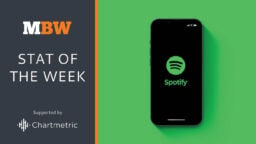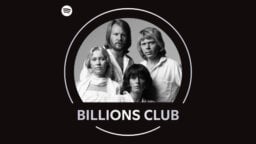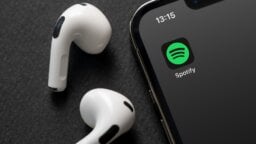Earlier this month, Spotify’s head of Latin music, Rocío Guerrero stepped away from the company to join Warner Music Group.
Guerrero’s name was added to an ever-growing list of recent high profile Spotify departures that also includes Troy Carter, former Global Head of Creator Services, and Tuma Basa, who led the RapCaviar playlist before departing to YouTube Music.
Even Carl Chery, who helped break artists like 6lack at Apple Music, jumped ship to Spotify.
Suddenly, the music industry’s coolest job is becoming increasingly vacant.
The rise of music streaming over the last few years introduced a detectable narrative which positioned playlists (and their curators) as the future of all music consumption; forget the shadowy radio DJ, meet the data-first curator.
Chery, in a 2016 interview with Buzzfeed, gestured in that direction saying: “I’m getting to a point where I’m so far ahead of things that I’m actually able to shift them. Instead of reacting to what’s happening, I have a hand in shaping what’s happening.”
The narrative was one of omniscient workers tucked inside the world’s largest tech companies – feeding listeners music trends they weren’t even aware of yet.
Daniel Ek nodded to it at Spotify’s investor day earlier this year, noting that over 30% of consumption on Spotify was now a direct result of recommendations made by the platform’s own algorithms and curation teams.
Ek said these trends put Spotify “in control of the demand curve”.
(The fact that some 70% of Spotify’s consumption therefore had nothing to do with algorithms or playlist gurus was left unexamined.)
The ‘playlists are taking over’ narrative was amplified last year in a Wired article which posited with unrelenting tech optimism about the “secret-hit making power of playlists” – the sort that supposedly propelled Starley’s 2016 single Call on Me to tens of millions of streams.
However, the article repeatedly confused the playlist attribution of the Starley original song and a Ryan Riback remix – and Spotify sidestepped explaining in any real detail how the company’s system worked.
“Nick Holmsten, the service’s head of shows and editorial, claims he could dig into the data and tell you which new song will be a hit in six months,” read the article.
“He declined to prove it, but says his team certainly saw ‘Call on Me’ coming.”
Spotify’s data and playlists mechanics are shrouded in mystery and thus the press, and average consumer, are left guessing how these magicians pulled off their trick.
In its F-1 filing with the Securities and Exchange Commission earlier this year, Spotify cited how Sean Parker, a former board member of the company, helped break the New Zealand star Lorde via his personal playlist.
The only issue: in reality, fans of Lorde (pictured) were following her movements on Tumblr and SoundCloud well before she ever showed up on Parker’s playlist.
The ability for Spotify to get away with this kind of PR-driven sleight of hand are fading away, however, as more competition enters its marketplace.
Increased visibility over streaming numbers shows that, while Spotify claims that its playlists are making careers, the raw numbers of streams suggest a different story.
Artists from Drake, J. Cole, Travis Scott, and even the Weeknd repeatedly showed bigger first week numbers on Apple Music versus Spotify – even when the latter has a 100 million-plus global user advantage.
Playlist fragility could be seen in Drake’s Scorpion: Spotify upset fans with an attempt to court Drake by splashing his face (and his music) on dozens of playlists. And yet Apple Music still outperformed Spotify on the album.
If getting pushed across dozen of Spotify playlists doesn’t stop fans just going to Apple Music, then you have to wonder: how much real value is there in this new format?
Perhaps not as much as the music industry sometimes assumes?
Spotify is now testing the first steps towards a ‘post-curator’ world by allowing algorithmic recommendations into its biggest playlists.
The music analytics site Chartmetric recently noticed that Spotify was testing algorithmic recommendations on at least 30 of its most popular playlists.
Automation would appear to be the end goal of such experiments: imagine a rap fan, listening to New Music Friday, being served a rap-focused set of songs without needing to skip over the EDM tracks.
No human curator necessary.
The last few months saw a lot of noise over Spotify first offering direct deals to artists, then opening the door through Spotify for Artists to allow direct song uploads, and lastly announcing a minor investment in the distribution platform Distrokid.
All of these new services push towards breaking down the ‘gatekeeper’ roles created by record labels and radio stations.
Playlist curators, though, represent a newer type of ‘gatekeeper’; are their roles being broken down, too?
Unfortunately for Spotify, a number of other companies have now followed its well-crafted ‘power of playlists’ narrative.
Pandora and SoundCloud both introduced sophisticated Discover Weekly-style personal playlists.
YouTube Music, the umpteenth rebranding of YouTube’s music offering, heavily borrowed from Spotify’s mobile interface – right down to the playlist iconography.
What Spotify offers – access to free music – isn’t so different from numerous illegal music sites which emerged in the late ’90s and early ’00s.
That’s why the playlist story is so crucial to the company’s narrative; otherwise, it blurs into a digital haze that also includes the likes of Apple Music, Deezer, TIDAL and YouTube, and their actually-pretty-similar products.
The mainstream press will always enjoy writing headlines where technology upends entire industries: see this 2017 Guardian piece: ‘They could destroy the album’: how Spotify’s playlists have changed music for ever.
These days it’s Spotify – not cassettes, bootleg vinyl records, the MP3, the internet, Napster, iTunes or the Pirate Bay – which will apparently kill the album.
But just think: perhaps in another ten years the playlist itself could be dead.
Judging by recent signs, we’ll all be listening to Artificial Intelligence, delivering us personalized songs that we literally can’t help but love.Music Business Worldwide







